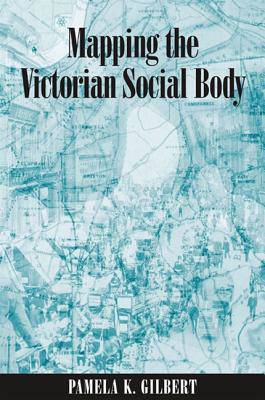
Door een staking bij bpost kan je online bestelling op dit moment iets langer onderweg zijn dan voorzien. Dringend iets nodig? Onze winkels ontvangen jou met open armen!
- Afhalen na 1 uur in een winkel met voorraad
- Gratis thuislevering in België vanaf € 30
- Ruim aanbod met 7 miljoen producten
Door een staking bij bpost kan je online bestelling op dit moment iets langer onderweg zijn dan voorzien. Dringend iets nodig? Onze winkels ontvangen jou met open armen!
- Afhalen na 1 uur in een winkel met voorraad
- Gratis thuislevering in België vanaf € 30
- Ruim aanbod met 7 miljoen producten
Zoeken
Omschrijving
The cholera epidemics that plagued London in the nineteenth century were a turning point in the science of epidemiology and public health, and the use of maps to pinpoint the source of the disease initiated an explosion of medical and social mapping not only in London but throughout the British Empire as well. Mapping the Victorian Social Body explores the impact of such maps on Victorian and, ultimately, present-day perceptions of space. Tracing the development of cholera mapping from the early sanitary period to the later "medical" period of which John Snow's work was a key example, the book explores how maps of cholera outbreaks, residents' responses to those maps, and the novels of Charles Dickens, who drew heavily on this material, contributed to an emerging vision of London as a metropolis. The book then turns to India, the metropole's colonial other and the perceived source of the disease. In India, the book argues, imperial politics took cholera mapping in a wholly different direction and contributed to Britons' perceptions of Indian space as quite different from that of home. The book concludes by tracing the persistence of Victorian themes in current discourse, particularly in terms of the identification of large cities with cancerous growth and of Africa with AIDS.
Specificaties
Betrokkenen
- Auteur(s):
- Uitgeverij:
Inhoud
- Aantal bladzijden:
- 267
- Taal:
- Engels
- Reeks:
Eigenschappen
- Productcode (EAN):
- 9780791460252
- Verschijningsdatum:
- 12/02/2004
- Uitvoering:
- Hardcover
- Formaat:
- Genaaid
- Afmetingen:
- 151 mm x 233 mm
- Gewicht:
- 462 g

Alleen bij Standaard Boekhandel
+ 290 punten op je klantenkaart van Standaard Boekhandel
Beoordelingen
We publiceren alleen reviews die voldoen aan de voorwaarden voor reviews. Bekijk onze voorwaarden voor reviews.











